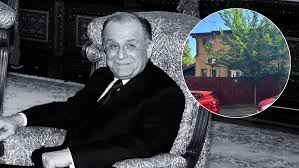
Introduction
Ion Iliescu, a significant figure in Romania’s post-communist political landscape, has had a profound impact on the nation’s trajectory since the fall of the communist regime in 1989. His leadership and policies have shaped modern Romania, making him a pivotal character in the story of Romania’s journey toward democracy and European integration. Understanding Iliescu’s influence is essential for grasping the complexities of contemporary Romanian politics.
Iliescu’s Political Ascendance
Born on March 3, 1930, in Oltenita, Ion Iliescu became involved in politics early in his life, joining the Communist Party in 1944. After the Romanian Revolution of 1989, Iliescu emerged as a key political leader. He was part of the National Salvation Front, which took over the government during the revolution. Iliescu was elected the first post-communist President of Romania in 1990, a position he held until 1996, and then again from 2000 to 2004. His initiation of reforms aimed at transitioning Romania from a communist regime to a market-oriented democracy marked a critical period in the nation’s history.
Key Policies and Reforms
During his presidency, Iliescu implemented significant reforms focused on economic stabilisation and liberalisation. His government worked to privatise state-owned enterprises and attract foreign investment, laying the groundwork for Romania’s integration into the European Union. Under Iliescu’s leadership, Romania began negotiations for EU accession, achieving membership in 2007. However, his tenure was also marred by criticisms regarding the slow pace of reforms and instances of alleged corruption in government.
Controversies and Criticism
Despite his contributions to Romania’s democratic transition, Iliescu faced controversies, particularly related to the violent events surrounding the revolution and the miners’ strikes in the early 1990s. Critics argue that his government’s response was heavy-handed, leading to civil unrest. Additionally, his affiliation with former communist elites sparked debates about the legitimacy of his leadership and the extent of true reform in Romania.
Conclusion and Legacy
Ion Iliescu remains a polarising figure in Romanian history. While he is credited with steering Romania towards democratic norms and EU integration, his administration’s shortcomings also provoke legitimate concerns about governance in the post-communist era. As Romania continues to navigate its place in Europe, Iliescu’s legacy offers critical insights into the ongoing challenges of political reform and the complexities of transitioning from an authoritarian past. Understanding his role helps illuminate the broader context of Romania’s democracy and the lessons learned throughout this tumultuous period.
You may also like

Understanding the Current Political Landscape in the UK

The UKIP Party: Recent Developments and Future Outlook
